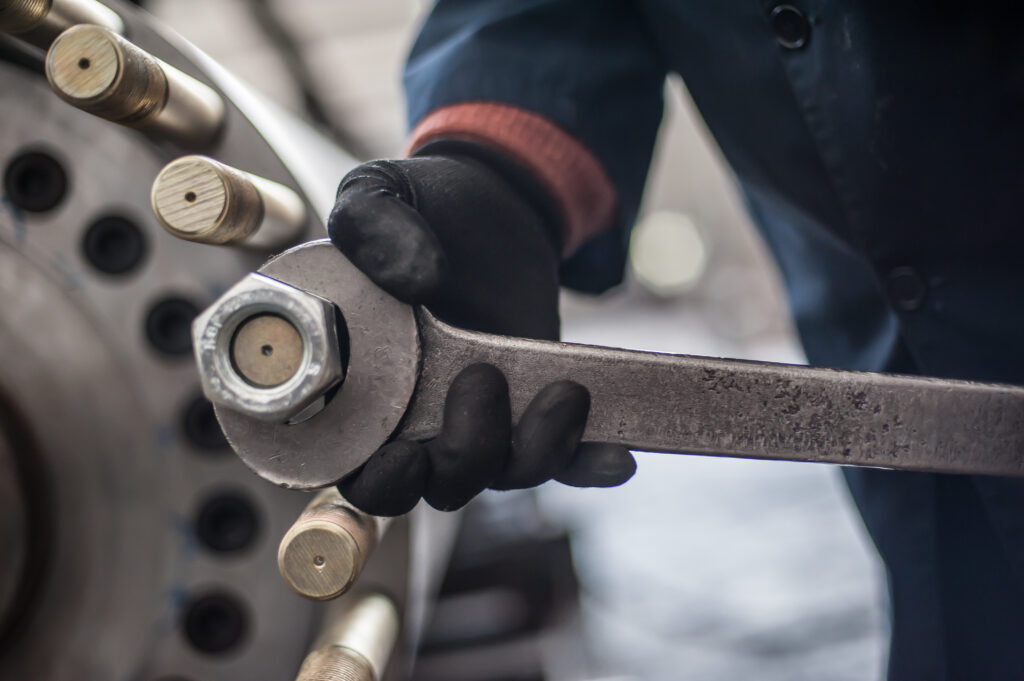How fast can heavy equipment repair services be completed?
A first-class heavy equipment repair services provider will aim to turn around basic repairs within 72 hours. This keeps your operations moving and avoids costly delays. The speed of the turnaround depends on the complexity of the repair, the availability of replacement parts, and the provider’s current workload.
Heavy equipment repair services, such as welding or simple part replacements, can often be completed within a day or two. More complex repairs that involve diagnostics, specialized components, or coordination with outside vendors may require additional time.
What Challenges Can Affect the Speed of Heavy Equipment Repair Services?
The biggest challenges are part availability and the type of repair needed. When a provider has the necessary components in stock or can fabricate them in-house, the repair process moves much faster. However, delays are more likely if parts need to be ordered or external vendors are involved.
Routine tasks, like minor welding or replacing worn parts, can sometimes be addressed the same day, particularly by providers with mobile repair units. More complex issues involving diagnostics, specialty materials, or structural repairs may require more time and coordination.
Some service providers offer same-day or emergency repair options in urgent situations. However, timing depends on your location, the day you call, and the scope of the work.
Do heavy equipment repair services companies offer on-site service?
Yes. Many modern heavy equipment repair providers offer mobile service, where technicians come directly to your location. This convenience eliminates the need to transport large equipment off-site and can significantly reduce downtime.
On-site repair is especially useful for equipment that’s too large or difficult to move. In many cases, providers bring fully equipped service vehicles capable of handling everything from diagnostics to welding.
What are the benefits of on-site repairs?
Transporting equipment to a repair facility can take hours or even days. On-site repairs eliminate that delay and allow technicians to see the machine in its actual working environment. This often leads to faster diagnostics and more effective solutions since the technician can assess the problem within the machine’s real-world conditions.
How do I know if mobile service is available in my area?
Start by checking the provider’s website or calling directly. Some companies serve customers only within a limited radius, while others, like Metal Services, cover wider regions across the U.S. and Canada.
Ask about the company’s mobile capabilities, response times, and any extra fees tied to travel or location-based service. A good provider will be direct about their reach and scheduling availability.
Do certifications matter?
Yes, certifications matter; look for companies that meet standards like AWS D1.1 for welding and ISO 9001 for quality assurance. These credentials indicate that technicians follow proven methods and safety practices.
The right partner will bring experience, transparent communication, and the skill to handle a wide range of repair needs under one roof.
For example, ISO certification requires consistent documentation, performance monitoring, and customer satisfaction practices, all signs that the provider takes its work seriously.
Should I choose a provider with in-house fabrication?
A provider also offers fabrication, welding, machining, and repair simplifies the entire process. This integrated approach reduces coordination hassles, shortens lead times, and provides greater consistency.
This one-stop shop model also streamlines communication. Instead of tracking down multiple people, you have one team managing the whole job, which helps ensure your equipment is fixed right the first time.
Reach out to our team and learn more about how we support businesses like yours.

